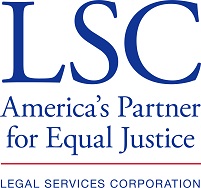Table of Contents
Debt Collection
What rights do I have when collectors call?
You have rights, even if you owe money. Many of your rights depend upon who is trying to collect the debt.
Collection Agency is the Collector
If a collection agency is collecting a debt, it must follow federal law. This law is called the Fair Debt Collection Practices Act. The law limits what a collection agency can do. For example, a collection agency may not:
- Contact you before 8 a.m. or after 9 p.m. (your time);
- Threaten to hurt you, your property, or your name;
- Use obscene or threatening language;
- Call you many times during the day, or try to harass you or any other person that answers the phone;
- Use lies or deceptions to collect a debt. They cannot imply you will be arrested, garnish your wages, or sell your property, unless they plan to take that action and can legally do so;
- Contact you directly, if you tell them you hired an attorney;
- Falsely imply that they have support from the government. They may not imply the sheriff or other police agencies support them.
Store, Bank, Medical Provider or Finance Company is the Collector
Federal law does not apply when an original creditor tries to collect on their own accounts. However, extreme harassment may still be illegal. If contacted, a bill collector or an attorney must say who they are and who they represent. Respond to collectors in writing. Keep copies of letters, payment agreements, bills, and processed checks.
How do I get proof that I owe the debt?
Tell the collection agency in writing that you want to see proof of the bill. This must be sent to you. The collection agency may not contact you until proof of the bill is sent to you.
When may collectors call about a debt?
A collection agency can only make contact you during certain times of the day. That might mean no calls before 8:00 a.m. or after 9:00 p.m. The collection agency cannot
- threaten you with violence, or
- say they have help from the government. For example, they cannot say the sheriff will remove your furniture unless you pay the debt.
May collectors contact other people about my debt?
Often relatives or neighbors of the consumer get calls from collection agencies about the consumer's debt. These contacts are permitted, but with limits:
- A collector may not tell the third party that the consumer owes a debt
- The contact must be limited to finding where the consumer lives or works.
There are legal penalties if a credit agency violates those limits. Have your family keep a written record of all the contacts made by the collector.
You can stop collectors from contacting you at work. Tell the collector your employer does not allow such calls and the calls must stop. Your employer might not have a policy on calls from collectors. But, they might not be pleased if you receive calls from collectors during work.
How do I stop a collector from calling me?
Tell the agency in writing to stop contacting you. You may be able to sue for damages if the agency contacts you after receiving notice. However, that does not stop a collector from suing you for the debt.
What do I do if I am served with a summons and complaint?
The summons will state when a response to the complaint must be filed with the court. This means you should file an answer with the court within the time limit in the summons. An answer form is on the Utah Courts' website (www.utcourts.gov).
Where can I get more help on collection matters?
To locate a private attorney, check the yellow pages of your phone book or contact the Utah State Bar Lawyer Referral Service at 1-800-698-9077 or (801) 531-9075.
Utah Legal Services may be able to answer your questions, call (801) 328-8891 in the Salt Lake area, or statewide toll free 1-800-662-4245.

